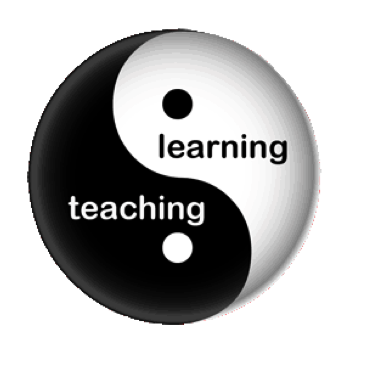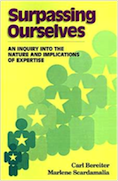Teaching is a ‘Way of Being’ – Part 1
Developing Expert Teachers vs. Experienced Nonexperts

Excellent teaching requires that teachers possess a particular way of being—not merely own a repertoire of recipes and protocols like the three-part lesson or inquiry lesson plans!
Now, be gentle with me!

Excellent teaching requires that teachers possess a particular way of being—not merely own a repertoire of recipes and protocols like the three-part lesson or inquiry lesson plans!
Now, be gentle with me!
I don’t dismiss the efficacy of the three-part lesson or inquiry lessons. These are absolutely excellent methodologies. It is often the case, however, that the theory is lost as we look to quickly take the implementable essence and apply it to our classroom practice. These techniques, I believe, should be either the outcome, or vehicle towards development, of deep pedagogical knowledge – of a way of being.
Teachers who are well-versed in educational theory and in the classroom application of these philosophical stances are able to see the curriculum as a landscape they can traverse and discover with their students in an exploratory – perhaps non-linear – fashion. If the teachers have the pedagogical prowess and superb knowledge of the curriculum, then they will be vigilant and opportunistic. They will seize upon the opportunities to weave curricular intent and outcomes into moments of student passion and interest.
On the other hand, teachers who have learned techniques without developing the requisite theoretical perspective may flounder whenever new situations arise. They are not able to generalize from one situation to the other. We see this inability to transfer in students all the time.
Teachers comfortable in this way of being possess expertise.
Expert Teachers versus Experienced Nonexperts

What is teaching expertise? Let’s examine that by comparing expert teachers with experienced non-experts! Carl Bereiter and Marlene Scardamalia, in Surpassing Ourselves: An Inquiry Into the Nature and Implications of Expertise, explain the difference. This brief description may not do the concept justice, but here goes.
“Experts, we propose, tackle problems that increase their expertise, whereas nonexperts tend to tackle problems for which they do not have to extend themselves.” (p.78)
They describe two hypothetical teachers, Cynthia and Margot, who have been teaching for the same length of time. Both have become adept at checking off the list of problems and challenges that any new teacher would face in managing a classroom. Any administrator could look into their classrooms and see relatively peaceful, pleasantly busy kids.
Both teachers – very skillful at what they are trying to do – appear to be experts. However, there are underlying differences. As Cynthia learns to eliminate problems from her list, she checks them off and moves down the list with the goal of eliminating all of the problems. Margot, on the other hand, upon eliminating a problem, adds another new one to the top. These problems at the top are ones she could not have thought of at the beginning of her career. ‘They have to do with distinctions she was not then aware of, such as the distinction between children’s telling what they know and explaining what they know.’ Margot engages in ‘reinvestment and progressive problem solving.’
Cynthia’s goal was to free her mind of dealing with problems through skilled, well-learned routines. Margot’s goal was to use her now available mental resources to ‘reinvest in the advancement of her teaching, in the pursuit of new goals or of goals she did not previously have the resources to pursue.’
Reinvestment and progressive problem solving are the heart of the process of expertise.
We need to develop expert teachers – not train them in being skilled nonexperts. We don’t do that by ignoring the big picture…the history…the philosophical stances.
How do we do that? In Teaching is a ‘Way of Being’ – Part 2, I will share three models that have recently impacted my work with both students and teachers: Stages of Change, Appreciative Inquiry, and Evocative Coaching.
This blog post is part of CEA’s focus on the state of Teacher PD in Canada, which is also connected to Education Canada Magazine’s Teachers as Learners theme issue and The Facts on Education fact sheet, What is Effective Teacher Professional Development? Please contact info@cea-ace.ca if you would like to contribute a blog post to this series.
